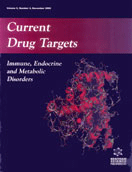Abstract
The issue of a possible relationship between type 2 diabetes and cancer is still debated. Such chronic diseases show a high incidence in the general population. In their pathophysiology both genetic and environmental factors are involved, inducing important modifications of metabolism. Diabetes is associated to profound metabolic alterations, such as hyperinsulinemia and insulin resistance, which are common in various diseases, i.e. obesity, hypertension, dyslipidemia and hyperuricemia. Those illnesses form the so-called metabolic syndrome. Insulin resistance, hyperestrinism and the associated hyperandrogenism may play a role in the onset of some malignancies, such as endometrium cancer, breast cancer and prostate cancer. Low plasma levels of IGF-1 are able to reduce the risk of cancer in type 2 diabetes patients. This goal can be obtained with preventive measures, as physical activity, diet and drugs that can reduce insulin resistance (metformin and thiazolidinediones).
Keywords: diabetes, breast cancer, hormones
 2
2


















